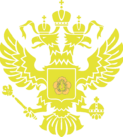Joseon-Svetvostok relations
Joseon |
Svetvostok |
|---|---|
| Diplomatic mission | |
| Embassy of Joseon, Krasnaya Gora | Embassy of Svetvostok, Seoul |
| Envoy | |
| Embassador Ryu Hanmi | Embassador Petro Pavlovich |
Joseon and Svetvostok share significant cultural and ethnic commonalities, and these factors have significantly impacted the history and politics of both countries. Today, the two countries maintain formal diplomatic relations and increase cooperation in some areas. Nevertheless, the relationship between the two countries remains chilly due to the historic conflict that has been going on since the 15th century, and the aftermath of the conflict between the two countries during the military regime that dominated Svetvostok until 2023.
The relationship between Joseon and Svetvostok began in the 15th century when Buyeo's families and clans, defeated in the Buyeo Civil War by King Taejo Lee Kun-gye of Joseon, fled to the west, forming a centralized state with Indigenous people. Since then, Joseon and Svetvostok have implemented security policies, regarding each other as major threats. There was no major total war between Joseon and Svetvostok, but by 1910 there had been several local wars between the two countries over borders and political issues. At the time of The Great War, there was no conflict between the two countries as Svetvostok declared neutral.
Recent difficulties between the two countries have been the dispute over responsibility for the military conflicts between the two sides, which arose during Svetvostok's military regime, and the border conflict. Despite the establishment of democratic governments in both countries, these conflicts remain a major diplomatic issue between the two countries to this day.
Country comparison
| Coat of arms | ||
| Population | 184,308,610 | 178,543,000 |
| Capital | Seoul | Krasnaya Gora |
| Largest city | Seoul | Krasnaya Gora |
| Government | Constitutional Monarchy | Presidential Republic |
| First leader | King Taejo Lee Kun-gye | President Joo Min-Hyuk |
| Current leader | Prime Minister Park Yohan | President Han Yeji |
| National languages | Northeast Hiakemirian | Northeast Hiakemirian, Northwest Hiakemirian |
History
Before the 20th century
In 1399, Lee Kun-gye's Lee Clan won the Buyeo Civil War, which involved five clans. But even then, the Seol Clan, which had the western border as its estate, continued to fight against the Lee Clan. Because the western plain was the second largest grain producer after the southern one, the Lee Clan continued their offensive on the Seol Clan's estate to stabilize the regime. The Seol Clan was militarily inferior to the Lee Clan, who was able to mobilize the entire nation's capabilities, and eventually, all members of the family and their followers fled across the western border. At that time, the number of migrants fleeing across the western border is estimated to be around 30,000.
In 1402, when the Seol Clan took control of the territory of the Principality of Yelgorod and proclaimed a new country, Seogaya, Joseon prepared for an attack by deploying 100,000 troops on the western border. However, this was also seen as an act of hostility to Seogaya, and troops of both sides faced off at the border area. In 1405, Joseon and Seogaya's troops fought on the Handae Plain. Seogaya's troops, who were outnumbered by Joseon in this battle, won and took control of most of the Handae Plain. After the end of the first Battle of Handae Plain, King Taejo Lee Kun-gye abdicated the throne to his son, Lee Bangyeon, due to deteriorating health.
King Taejong Lee Bangyeon attacked Handae Plain again in 1412 after replacing military leaders and reorganizing his forces. He won this battle and regained the Handae Plain from Seogaya. King Taejong Lee Bangyeon was able to consolidate his leadership by winning the battle, but he did not launch further attacks on Seogaya due to the heavy consumption of national power.
Both Joseon and Svetvostok's historical texts record a total of 57 armed conflicts from 1412 to 1898. However, these were all accidental or small-scale armed conflicts.
The 20th century
In 1902, after Seol Hyeong, the last king of The Seol Clan, stepped down from the throne after declaring the abolition of the monarchy, Seogaya had a democratic republic centered on parliament. Seogaya changed the name of the country to Svetvostok and began to implement a policy of racial integration and a foreign policy of a pacifist nature. In 1908, Joseon and Svetvostok officially established diplomatic relations and recognized each other as a state. Following the peace agreement, half of the troops of the two countries were withdrawn from the border, and human and material exchanges between the two countries began.
When General Yoo Mincheol's coup d'état broke out in Svetvostok in 1972, Joseon immediately asked General Yoo Mincheol to cede power to a democratic government. General Yoo Mincheol refused and declared the end of the peace agreement. The Yoo Mincheol regime did not cut off diplomatic relations with Joseon, but returned everything else to pre-peace deals. Large-scale troops were deployed again at the border area, and human and material exchanges between the two countries were also halted. Joseon's Prime Minister Park Jung-Chul provoked Svetvostok by warning of a strong military response. In 1974, when Joseon's naval ships seized Svetvostok's surveying vessel, relations between the two countries became extremely hostile. Joseon released Svetvostok's surveying ship in 1976.
When Prime Minister Park Jung-Chul left office and Prime Minister Kim Dae-Jun took office in 1978, Kim Dae-Jun initiated a policy of detente by calming relations between Joseon and Svetvostok and gradually increasing exchanges. Under the détente policy, some material exchanges between the two countries resumed and a summit between the two countries was held in Krasnaya Gora. However, détente did not progress further due to the lukewarm response of the Yoo Mincheol regime of Svetvostok.
In 1997, Joseon's Prime Minister Kim Yeong-Shin attempted a policy that called for the improvement of Svetvostok's deteriorated democratic situation while maintaining the détente policy. Although principled people within Joseon supported this policy, the Yoo Mincheol regime regarded it as a hostile attitude. Prime Minister Kim Yeong-Shin kept the policy in place until he left office.
After the 21st century
Joseon's Prime Minister Roh Moo-Hwan, who took office in 2013, has maintained a policy of peace pursuit, continuing the détente policy of Prime Minister Kim Dae-Jun. Although the Yoo Mincheol regime showed a lukewarm attitude, there were achievements such as the holding of a second summit between the two countries and an increase in some personnel exchanges.
In 2018, Yoo Mincheol of Svetvostok left office after handing over the presidency to his son, Yoo Ji-Cheol. However, the Yoo Ji-cheol regime was weaker than ever because of the Svetvostok people's discontent with the military's hereditary dictatorship, which lasted more than four decades. As anti-government protests that began in late 2022 began to gradually spread throughout Svetvostok, the Yoo Ji-Cheol regime sought to harshly suppress the protests while turning people's discontent to the outside of the country.
In 2023, Svetvostok launched a local war in the border region to take control of Handae Plain. However, Svetvostok's attempt to capture territory in the Battle of Handae Plain in 2023 was completely foiled due to a counterattack by the Royal Joseon Armed Forces.
The public's anger towards the Yoo Ji-Cheol regime, which failed in battle, grew, and in July 2023, a nationwide resistance movement engulfed Svetvostok. The Yoo Ji-Cheol regime tried to oppress the resistance movement with a massive armed crackdown, but eventually, the Yoo Ji-Cheol regime stepped down on its own after military soldiers and police refused the order.
President Kim Minsu, who took power shortly after holding the 2023 general and presidential elections, has publicly expressed his intention to sign a peace deal with Joseon. However, Park Geun-Hyun, then the prime minister of Joseon, did not respond to peace negotiations, citing Svetvostok's diplomatic attitude. The move continued until 2026, when Park Geun-Hyun was ousted by a vote of no confidence, citing constitutional violations.
Prime Minister Lee Jae-Yeon, who took power in late 2026, officially responded to Svetvostok's proposal for peace negotiations, and a summit between the two countries was held in 2027. The two countries agreed on reducing military tensions in the border region and resuming exchanges, but failed to sign a peace agreement. In 2029, a summit was held again between Prime Minister Lee Jae-Yeon of Joseon and President Vladimir Lebedev of Svetvostok, and the two countries agreed to normalize all kinds of human exchanges, including travel, but failed to sign a peace agreement.
In 2032, Joseon's prime minister, Jeong Dohyung, proposed regular high-level talks to Svetvostok to conclude a peace deal, but the proposal did not materialize when Prime Minister Jeong Dohyung resigned in the aftermath of the November incident.
Trade
The main trade items between Joseon and Svetvostok are semiconductor materials, electronics parts, and petroleum. Both countries produce semiconductors and make them their main export products, but Svetvostok imports a large part of the materials needed to produce semiconductors from Joseon. On the other hand, Joseon imports a significant amount of oil from Svetvostok, the geographically closest oil-producing country.
Territorial disputes
Currently, the two countries do not have a clearly defined border treaty for Handae Plain, which is located on the land border, as well as the sea border adjacent to the coast. At the time of the Battle of Handae Plain in 2023, the two countries engaged in a local war over an unclear land border. At the time, the two countries fought over both sea and land borders, but since then, the two countries have not withdrawn their positions.
Since Svetvostok's democratization in 2023, Joseon and Svetvostok have held several rounds of discussions at summits and high-level talks to resolve the border issue. However, the territorial issue has not been resolved to this day due to disagreements about historical territories and areas of effective control, and differences between the two countries over where they are responsible for previous military conflicts.

